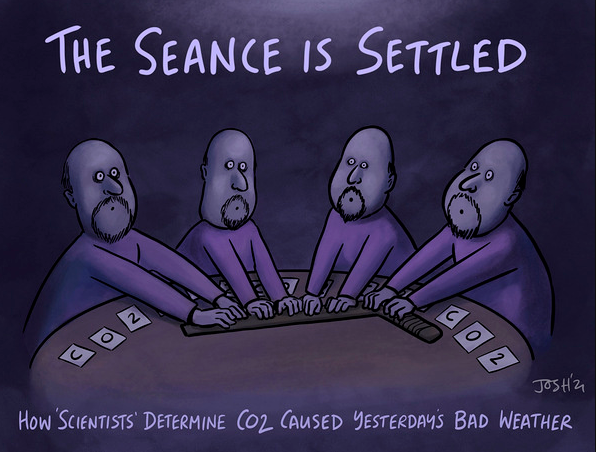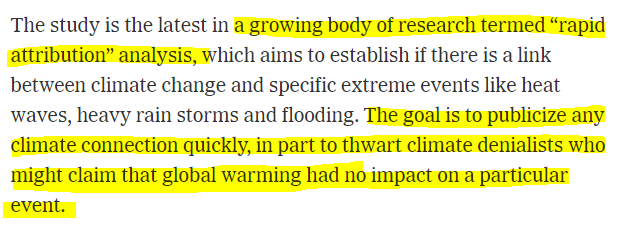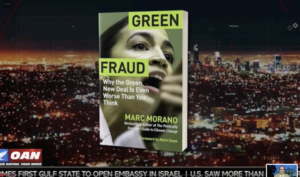What is climate attribution about?
Politics first, science secondSo let's err on the side of claiming every weather event is linked, connected, fueled by climatehttps://t.co/ENdfSbebDr pic.twitter.com/DG8QT2Up7K
— The Honest Broker (@RogerPielkeJr) December 15, 2021
As I explained here: https://t.co/gwBEtQRWcd
— The Honest Broker (@RogerPielkeJr) December 15, 2021
The Politics of Our Climate Attribution Obsession
Linking disasters to climate change is typically about more than just interesting science
https://rogerpielkejr.substack.com/p/the-politics-of-our-climate-attribution
After every extreme weather event, politicians, journalists and scientists can be found quickly making claims that the event was caused by, made worse by, linked to, fueled by, or otherwise tied to climate change. This week’s tragic tornado outbreak in Kentucky and surrounding states is no different. Yesterday, President Biden linked the tornadoes to climate change, and called for the U.S. Environmental Protection Agency to investigate the details, even as the big picture was clear: “the fact is that we know everything is more intense when the climate is warming. And obviously it has some impact here.” …
In this post I focus not on the science of climate attribution but on the underlying politics of attribution claims. When attribution claims are made, more is being conveyed than just scientific details about the causes of a particular disaster – a message is being sent that climate change is important and support for climate policies is the goal.
This is the argument advanced in an insightful new article published last week by Myanna Lahsen and Jesse Ribot. …
So if it is so well known that disasters are the result of a complex interplay of social and climate factors, why then is climate typically the main focus of attention after every extreme event?
The answer, according to Lahsen and Ribot, is politics:
The desire to persuade the public of the dangers of climate change via attributions of climate events pressures scientists and the media alike to attribute extreme climate events (and associated crises) to climate change. Dedicated to comprehensively monitor, analyze, and correct climate skepticism and related misinformation circulating in U.S. media and society, the progressive research and information center Media Matters for America regularly scolds U.S. media outlets for failing to mention that climate change is driving the conditions that create this “new normal” of frequent crises—as, for example, in the form of destructive wildfires (Robbins, 2015).
Indeed, just today Jack Tapper, CNN journalist and the head of the U.S. Federal Emergency Management Agency, Deanne Criswell, exactly followed the recommended Media Matters script when discussing the tornado disaster.
TAPPER: And scientists warn that extreme weather events such as this one will only happen more frequently as the climate continues to warm. Is your agency, is FEMA equipped to handle this new normal?
CRISWELL: This is going to be our new normal. And the effects that we’re seeing from climate change are the crisis of our generation.
Far from being a “new normal”, on tornadoes the recent IPCC assessment report is quite clear on the state of detection of trends and attribution:
· “observational trends in tornadoes, hail, and lightning associated with severe convective storms are not robustly detected”
· “attribution of certain classes of extreme weather (e.g., tornadoes) is beyond current modelling and theoretical capabilities”
· “how tornadoes or hail will change is an open question”
Consider also that according to data from the U.S. National Weather Service from 2000 to 2020 only four of the strongest category of tornadoes were observed (which are labelled as F/EF5 tornadoes) In comparison, from 1954 to 1974 36 (!) such powerful tornadoes were observed. Our research on tornado damage in the United States over many decades shows a decline that is suggestive of an actual decline in tornado incidence.
Based on the IPCC assessment of the literature, along with the underlying data and research, the only scientifically valid answer to the question of whether greenhouse gas emissions and associated climate change are leading to more or more intense tornado outbreaks — a “new normal” — is that neither tornadoes nor the most intense tornadoes have increased since at least the 1950s.
…
So every time you hear or read a claim about this or that disaster being linked to climate change, as interesting as the underlying science may be, what is actually being conveyed is a stealthy promotional message encouraging you to consider climate change to be important and thus to support efforts to decarbonize the economy.
#
Related:
‘We never hear the absence of extreme weather analysed.’ Is ‘global warming’ causing less ‘extreme weather?!’
How Do They Explain ‘The Extreme Weather Events That Did Not Happen’
Here are the key facts via climate analyst Paul Homewood:
‘US land falling hurricanes have been at record low levels in recent years, and it is now more than ten years since a major hurricane hit.’
‘There has been a long-term decline in both the number of tornadoes, and particularly, the frequency of stronger ones.’
‘Droughts were much more commonplace, prolonged and severe prior to the 1970s.’
‘There is no indication of precipitation becoming more extreme. The wettest year was 1973.’
‘There has been a marked absence of extreme heatwaves in recent years, and nothing approaches the run of intensely hot summers in the 1930s.’
The IPCC’s attribution methodology is fundamentally flawed & ‘largely meaningless’
The UN IPCC’s “Optimal Fingerprinting” methodology on which they have long relied for attributing climate change to greenhouse gases is seriously flawed and its results are unreliable and largely meaningless.
NYT: “The study is the latest in a growing body of research termed “rapid attribution” analysis, which aims to establish if there is a link between climate change and specific extreme events like heat waves, heavy rain storms and flooding. The goal is to publicize any climate connection quickly, in part to thwart climate denialists who might claim that global warming had no impact on a particular event. The study, which took a little more than a week, is not yet peer-reviewed or published in a scientific journal.
#
Extreme weather expert Dr. Roger Pielke reacts: “This is such an odd and troubling motivation for doing scientific research – to win the daily news cycle over your political opponents.”
Charles Rotter also noted that climate activists also promote “pre-event attribution science.”
“Attribution” analysis is specifically criticized by former Obama administration climate scientist Steven E. Koonin in his new book, Unsettled: What Climate Science Tells Us, What It Doesn’t, and Why It Matters.
Koonin: “Practitioners argue that event attribution studies are the best climate science can do in terms of connecting weather to changes in climate. But as a physical scientist, I’m appalled that such studies are given credence, much less media coverage. A hallmark of science is that conclusions get tested against observations. But that’s virtually impossible for weather attribution studies. Its like a spiritual adviser who claims he influence helped you win the lottery — after you’ve already won it.
…
The bottom line is that the science says that most extreme weather events show no long-term trends that can be attributed to human influences on the climate. (What models might project for future extremes is quite a different matter, though its often conflated with what the observational record shows.) Yet the popular perception that extreme events are becoming more common and more severe remains.”

Friederike Otto, a climate expert at the University of Oxford: ‘Unlike every other branch of climate science or science in general, event attribution was actually originally suggested with the courts in mind.”
In fact, Otto herself has relied on climate attribution work to support climate lawsuits as a 2019 E&E News story mentions: “Friederike Otto, a climate expert at the University of Oxford and lead scientist at the World Weather Attribution project, said she talks ‘a lot with lawyers’ about how attribution science could be used as a litigation tool.” … Otto also signed onto a motion in support of San Francisco and Oakland’s climate lawsuit and the E&E News article mentions that she works with Myles Allen, another climate academic at Oxford, who, the publication notes, “authored what is widely considered the first attribution study on the 2003 European heatwave,” and he wrote an op-ed that same year linking attribution science and lawsuits.




